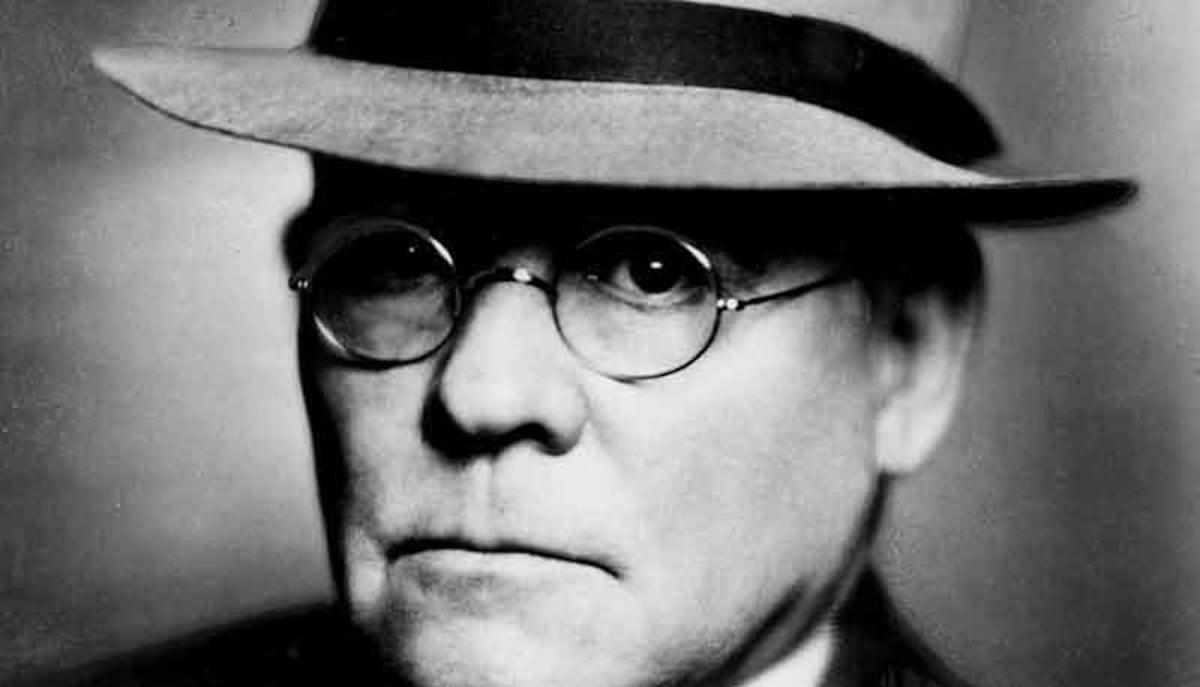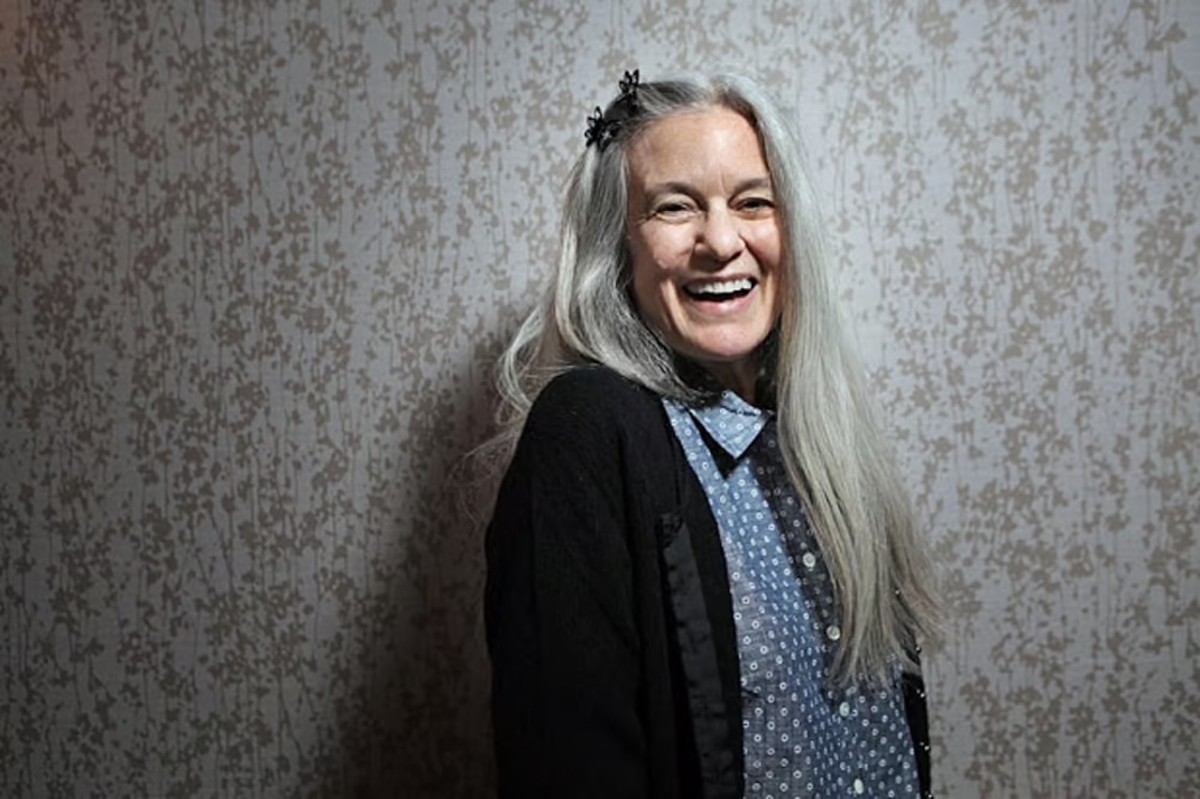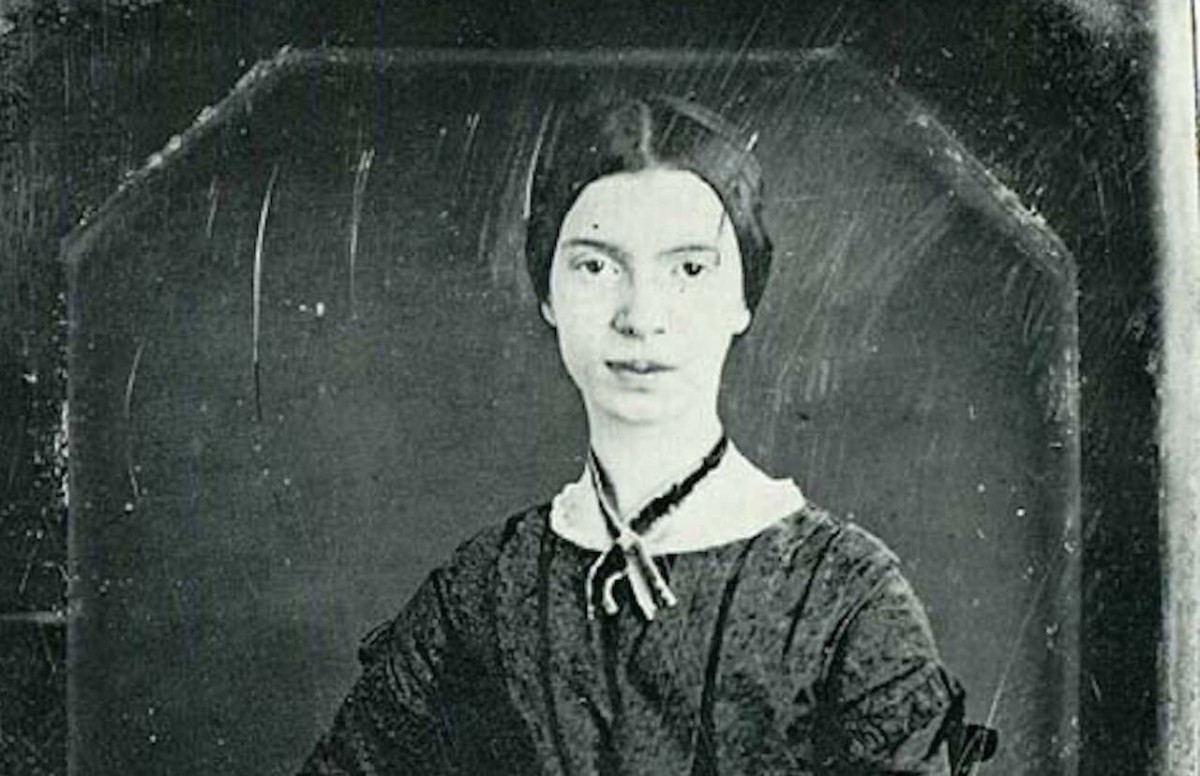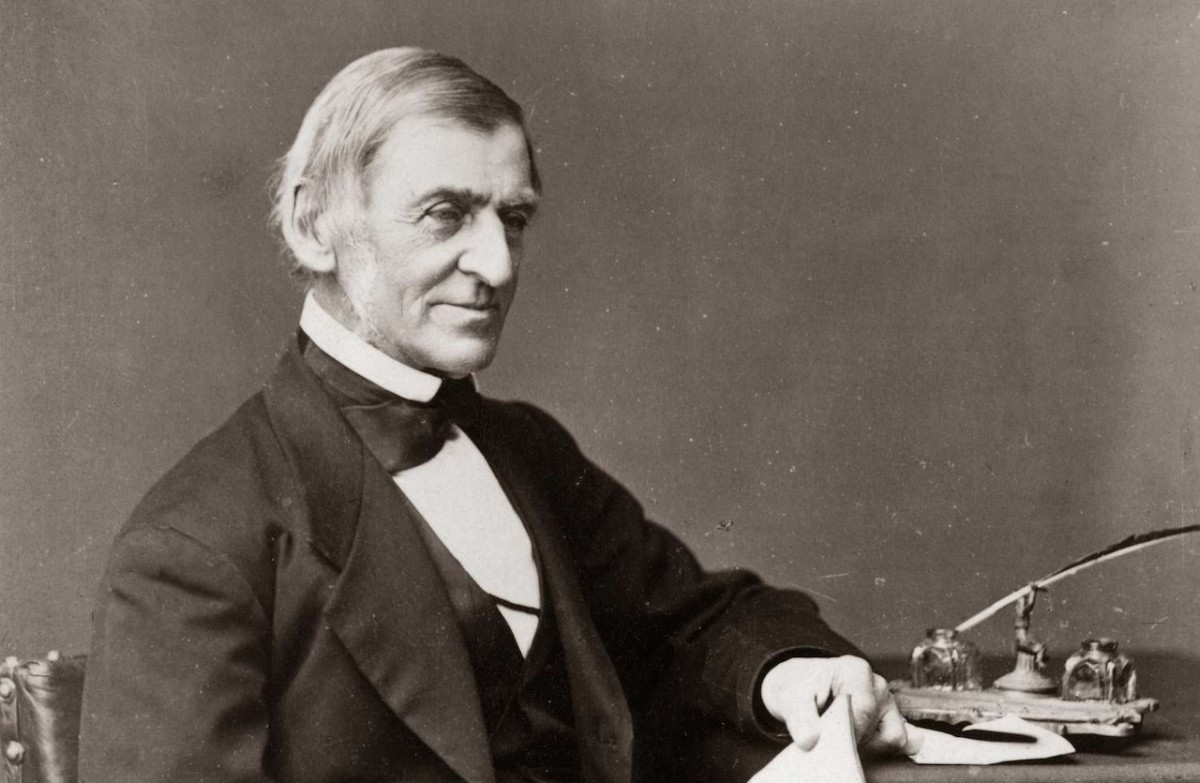Edgar Lee Masters’ "Barry Holden"
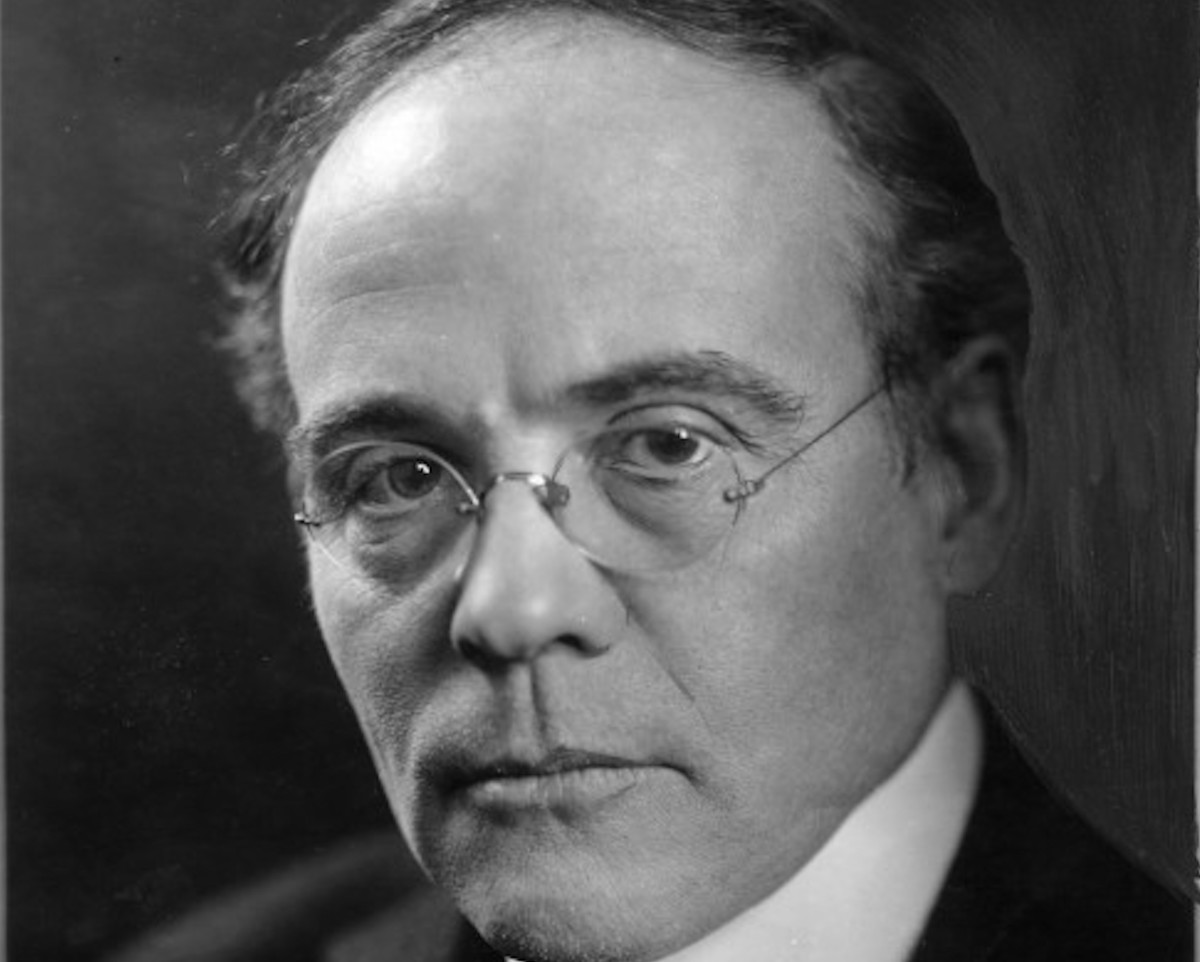
Introduction and Text of "Barry Holden"
In Edgar Lee Masters’ "Barry Holden" from the American classic Spoon River Anthology, the speaker begins by letting his listeners know that he is the brother of Nancy Knapp, who in a fit of insanity burned down her own house.
By the time he is finished, the reader will cringe at the brutal act he commits. That Holden couples his confession with what he heard at a murder trial just piles more flaws onto his already flawed character.
Barry Holden
The very fall my sister Nancy Knapp
Set fire to the house
They were trying Dr. Duval
For the murder of Zora Clemens,
And I sat in the court two weeks
Listening to every witness.
It was clear he had got her in a family way;
And to let the child be born
Would not do.
Well, how about me with eight children,
And one coming, and the farm
Mortgaged to Thomas Rhodes?
And when I got home that night,
(After listening to the story of the buggy ride,
And the finding of Zora in the ditch,)
The first thing I saw, right there by the steps,
Where the boys had hacked for angle worms,
Was the hatchet!
And just as I entered there was my wife,
Standing before me, big with child.
She started the talk of the mortgaged farm,
And I killed her.
Commentary on "Barry Holden"
"Barry Holden" couples his own desperate and despicable act with the murder trial of Dr. Duval, who stands accused of murdering his pregnant lover Zora Clemens.
First Movement: A Murder Trial
The very fall my sister Nancy Knapp
Set fire to the house
They were trying Dr. Duval
For the murder of Zora Clemens,
And I sat in the court two weeks
Listening to every witness.
During the same autumn season that his sister, Nancy Knapp, burned down her house, Barry Holden sat in a courtroom for two weeks listening to the witnesses give testimony in a murder trial. Dr. Duval was on trial for the murder of Zora Clemens.
It is unclear if Barry is suggesting that he was serving as a juror or whether he was just fascinated by the details of the murder as he listened carefully to each witness. It may be that he is trying to establish his good character or perhaps he is just a crazy, addled-brain criminal just as his sister was.
It does seem odd that he would continue to come to court every day for two weeks, unless he was, in fact, serving on the jury. But because it remains unclear whether Barry was a juror, the reader must simply take it as a fact that what he heard must have encouraged him in his final despicable act.
Second Movement: The Nature of the Trial
It was clear he had got her in a family way;
And to let the child be born
Would not do.
Well, how about me with eight children,
And one coming, and the farm
Mortgaged to Thomas Rhodes?
Barry then gives some terrifyingly pertinent information about the nature of the trial. After getting Zora Clemens pregnant, the doctor could not allow her to carry that baby to term. Barry expresses it that allowing the baby to be born, "Would not do."
Then Barry switches gears rapidly. Informing his listeners that he is in a similar situation, or no, worse! Barry already has eight children, and his farm is mortgaged to Thomas Rhodes (more about Rhodes in #104). Pile on top of that, his wife is pregnant with child number nine.
In order to show his lamentation over his situation, Barry forms his information into a question. That question is meant rhetorically to put the listener squarely in Barry's mind with the only answer: what else could you do?
Third Movement: The Hatchet
And when I got home that night,
(After listening to the story of the buggy ride,
And the finding of Zora in the ditch,)
The first thing I saw, right there by the steps,
Where the boys had hacked for angle worms,
Was the hatchet!
So after hearing the details of Zora's murder, how there had been a buggy ride and Zora was found in a ditch, Barry goes home. And the first thing he sees is the hatchet lying out by the steps. His sons had been "hack[ing] for angle worms."
One might, at this point, expect that Barry would be on the warpath to upbraid his sons for leaving the hatchet lying out. But Barry's mind does not work that way. He is even more selfish and self-important than behaving as a boorish parent would indicate. So he enters his house.
Fourth Movement: Desperate and Despicable
And just as I entered there was my wife,
Standing before me, big with child.
She started the talk of the mortgaged farm,
And I killed her.
The first thing Barry sees upon entering the house is his wife "big with child." She begins to talk about the farm being mortgaged. And Barry calmly says, "And I killed her." Interestingly, Barry seems to imply that he killed his wife with the hatchet, but he does not state so directly.
The reader, however, will be led to assume that he picked up the hatchet before entering the house, even though he does not say that he did. Of course, it ultimately does not matter how Barry Holden killed his wife.
What matters is that this despicable character existed, exists, and will continue, for all we know, throughout the existence of this physical planet Earth. Plus, he may have been serving as a juror!
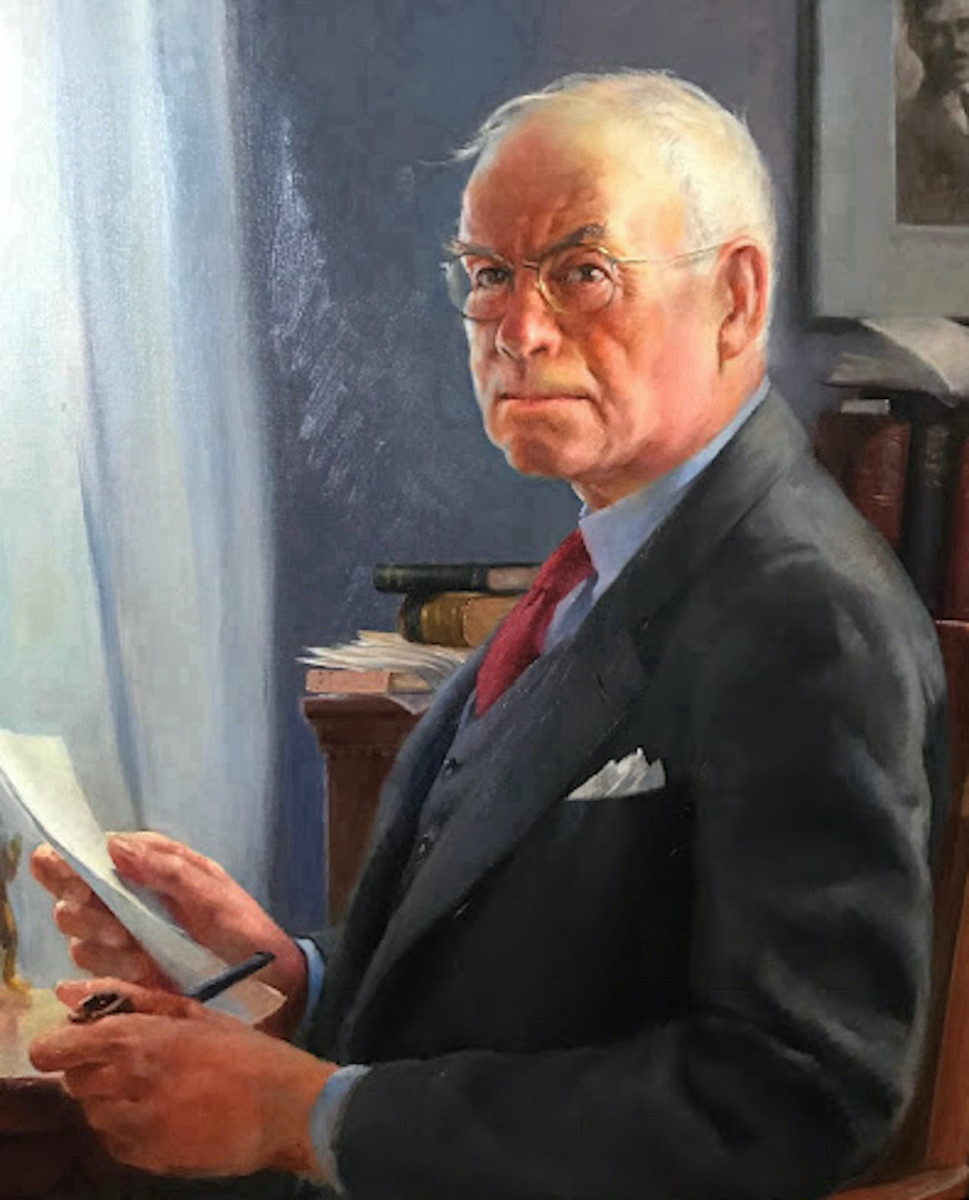
Related Edgar Lee Masters Information
- Life Sketch of Edgar Lee Masters Edgar Lee Masters’ American classic Spoon River Anthology brought the poet into the literary spotlight, and no other work from his extensive writings has attracted more attention, including his sequel to Spoon River The New Spoon River.
Commentaries on Edgar Lee Masters Poems
- Edgar Lee Masters’ "The Hill" The poem "The Hill" opens Edgar Lee Masters’ American classic Spoon River Anthology, which is told in a series of dramatic epitaphs by the deceased residents of Spoon River, an imaginary town in Illinois. The work might be considered a character study in poetry.
- Edgar Lee Masters’ "Hod Putt" Hod Putt considered himself a loser in life, but he envied those who were successful.
- Edgar Lee Masters’ "Fiddler Jones" and "Barney Hainsfeather" Fiddler Jones is one of the less melancholy figures of Spoon River, though he has his trials as well. Barney Hainsfeather's epitaph reveals a unique complaint of a man who laments being buried in the wrong cemetery.
- Edgar Lee Masters’ "Robert Fulton Tanner" Fulton is a pathetic character, who discovers that literally building a better mouse trap might only provide a cliché to fling at this thing vaguely called "Life."
The "Minerva Jones" Sequence
- "Minerva Jones" The "Minerva Jones" epitaph features one of the most depraved characters of the Spoon River talking dead. She is self-absorbed and haughty, lacking empathy and self-awareness, causing her to remain ignorant of her own discordant thoughts.
- "'Indignation' Jones" In the second epitaph of the "Minerva" series, the poetess’ father, "Indignation" Jones, fulminates against Spoon River society.
- "Doctor Meyers" The third epitaph in the Minerva Jones series features "Doctor Meyers," who performed the abortion that led to the death of the unfortunate poetess.
- "Mrs. Meyers" In the fourth epitaph in this series,"Mrs. Meyers," Dr. Meyers' wife testifies that her husband, whom she calls "poor soul," reaped what he sowed for his actions in life. The religious woman offers advice for a pleasant and peaceful life, reminding humanity to "Love God and keep his commandments."
- "'Butch' Weldy" The fifth and final epitaph "'Butch' Weldy" concludes the "Minerva" series. Butch declaims about his ordeal after a work related accident—with nary a nod to Minerva.
The Pantier Sequence
- "Benjamin Pantier" and "Mrs. Benjamin Pantier" Unbridled arrogance, overweening vanity along with cowardly weakness have combined to bring about the destruction of the marriage of Mr. and Mrs. Benjamin Pantier. The husband appears to be weakling allowing himself to be cowed by his wife, an arrogant bully.
- "Reuben Pantier" Reuben Pantier's colorful character helps dramatize the power of spiritual love for healing the mind, heart, and soul, even through the distance of miles and decades. Reuben is the son of the dysfunctional couple Mr. and Mrs. Benjamin Pantier.
- "Emily Sparks" The epitaph "Emily Sparks" in Edgar Lee Masters’ American classic Spoon River Anthology is the fourth entry in the sequence of five epitaphs featuring a dysfunctional couple, their son, and the latter’s influential mentor.
- "Trainor, the Druggist" Edgar Lee Masters’ "Trainor, the Druggist" from the American classic Spoon River Anthology offers a final installment covering the pitiful story of the Pantiers: Mr. and Mrs. Benjamin Pantier and their son Reuben.
This content is accurate and true to the best of the author’s knowledge and is not meant to substitute for formal and individualized advice from a qualified professional.
© 2025 Linda Sue Grimes

